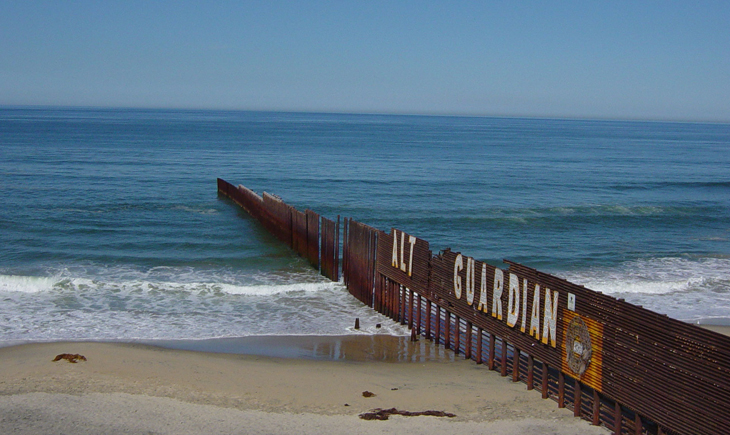

Why Support The Tijuana - San Diego Border?
Changes in U.S. and international policy have always impacted the San Diego – Tijuana border region and its residents. Most recently, larger flows of migrants have put pressure on the existing fragile infrastructure that meets the needs of migrants and repatriated Mexicans. The result in the San Diego-Tijuana border region is urgent and unique.
Impact of the San Diego - Tijuana Border
- While other cities along the southern border receive immigrants from Latin America, Tijuana uniquely attracts the highest number of repatriated migrants and Mexican nationals, along with immigrants of ethnic, cultural, and socioeconomic diversity, such as the approximately 3,000 Haitians who have settled in the city since 2016. This diversity brings both unique challenges and opportunities for providing services and integrating immigrants into the community.
- The economies of San Diego, Imperial, and Baja California are closely intertwined. According to a 2018 report released by World Trade Center San Diego, California’s exports to the country are worth nearly $27 billion. Of these, crossborder manufacturing of products (versus just trade in products) is worth about $6.2 billion a year and over 566,000 jobs in California are dependent on trade with Mexico. The magnitude and depth of these economic relationships inherently affect the local populations of both San Diego and Tijuana, and likewise, are impacted by any changes in national or local policies ranging from education to environment, workforce development, security, and of course, immigration.
- Changes in immigration policy have immediate effects on people’s lives. In a region that experiences over 135,000 daily northbound border crossings, as people live and work on different sides of the border, people’s lives are directly disrupted by changes in enforcement or new policies. In a region that continues to experience some of the highest levels of criminal activity and record-breaking numbers of homicides in 2018, migrants and asylum seekers are even more vulnerable to violent crimes, human trafficking, or even recruitment into gangs and drug cartels as they wait in Tijuana.
How To Support The Tijuana Border
Fortunately, Tijuana has a thriving community of individuals and civil society organizations who are responding to the needs of these vulnerable populations, just as they have been for decades. And the proximity to the United States makes it easy for donors to become engaged either through volunteering, direct contributions or donations to the International Community Foundation’s Border Fund, which is directly benefiting dozens of nonprofit organizations in Tijuana.
Supporting Migrants From Tijuana
Since 2019 ICF has granted over $5.4 million to grassroots organizations responding to the basic needs of a growing population of vulnerable migrants and deportees in Tijuana, providing shelter, food, medicine, psychological support, and legal services. These organizations consist primarily of local shelters, as well as organizations providing legal and health services, including, but not exclusively, Casa del Migrante Tijuana, Centro Madre Assunta, Espacio Migrante, Deported Veterans Support House, Dreamers Moms/USA-Tijuana, and Friends of Friendship Park. All of these organizations have ongoing immediate needs and continue to be valued partners of ICF and our donors.
ICF is also partnering with several organizations to create and support Ludotecas (education spaces) for migrant children in 10 shelters in Baja California and Baja California Sur, Mexico. A Ludoteca is an organized space intended for the integral development of children and adolescents, whose center of interest is for them to learn through the power of play. Through the help of Ludoteca librarians, children can work on psychomotor and cognitive skills, creativity, and fun. Using all forms of play – games, dramatization sets, reading and music corners, performance, and among others – this alliance will create a lasting impact and empower children with the knowledge and skills they need to drive change in their lives, families, and communities.
The Border Fund
As the go-to international grantmaker in the San Diego – Tijuana border region for nearly 30 years, ICF is uniquely positioned to take a leadership role in the region as a philanthropic stakeholder. We have strong ties to civil society organizations, government agencies, and the private sector that allows us to better understand and research complex issues, identify new strategic partners, and – alongside our donors, like you — quickly respond to situations as they arise.
The ICF Border Fund was established to strengthen key organizations that work to create healthy, vibrant, and inclusive communities in the Baja California region. Through this fund, ICF is supporting the development of sustainable infrastructure, public services and education for current and future migrants in the TJ-San Diego region.
Solving Migrant Needs At The Tijuana Border
In 2022, ICF’s Border Fund will benefit organizations whose mission or programs align with the following medium and long-term needs for the migrant and repatriated populations in Tijuana:
- Education for migrant children and adults
- Access to basic and mental health
- Defense of human rights: legal services and advocacy
- Strengthening civil society: capacity and infrastructure
- Cultural inclusion and equity
Contact: If you are interested in learning more about the Border Fund and our partners, please contact Senior Program Officer of Education & Migration, Eliza Brennan at eliza@icfdn.org.
[wpad-comment-form id="883"]
Join Our Mailing List
Stay Connected with ICF
Be the first to get exclusive updates on
what ICF is doing to make a difference!
Fields marked with an * are required
